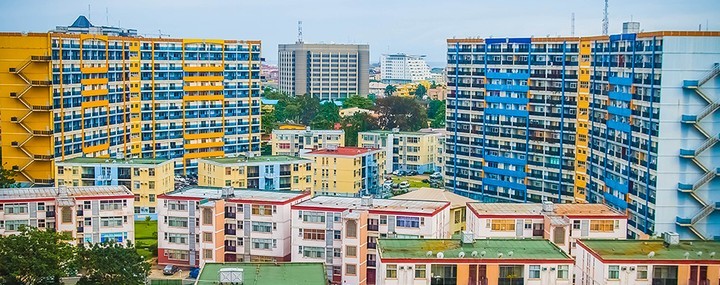At the just concluded annual builder’s day 2024, the President of the Nigerian Institute of Building (NIOB) has called for government intervention by implementing policies that encourage local production of building materials.
Recall that in the early 1990s, there was a popular slogan which says: “Housing for all by the year 2020”. Thirty-four years down the line, nothing has happened.
Let me pose a question: Why is it that successive administrations failed to provide housing for the yearning masses? Your guess is as good as mine. This article will examine the challenges that have militated against housing delivery in Nigeria and proffer possible solutions. Provision of housing in Nigeria has become a mirage due to some challenges.
These include but not limited to the following: – lack of a clear cut National Housing Policy; lack of political will; the use of quacks and substandard building materials, high cost of building materials, abuse of the implementation of land use decree of 1978, and institutional barriers.
- Nigerian woman, Oluchukwu makes history at UK’s military academy
- Ondo gov’ship: APC aspirants tackle Aiyedatiwa over ‘no vacancy’ comment
Some of the issues that I have enumerated will be highlighted briefly. Let me start with the issue of Comprehensive National Housing Policy. I am not quite sure if we have a comprehensive national housing policy. In order to develop a comprehensive national housing policy, there are five stages that are involved. The first stage has to do with NEEDS ASSESSMENT.
In carrying out the needs assessment, the following questions must be asked: – what categories of people are going to be provided with housing? Is the project meant for the low income earners or middle income earners; where is the project going to be sited? What about affordability?
The second stage is the identification of project inputs. What are the project inputs? How is the labour going to be provided? How is the land going to be acquired? And how are the materials such as cement, aluminum sheets, iron rods, sand and gravel going to be procured? Are they going to be sourced locally or imported? And how long is the project going to last?
The third stage has to do with the costs of the housing project. What will be the total costs of this project? In determining the costs of the project, you need to be realistic because if you don’t get the costs right you are likely to run into a problem. The fourth stage which is very crucial is the Funding Mechanism. How is the project going to be funded? Is the project going to be financed by an international organization or is it going to be a public private partnership (PPP)? All the above questions beg for answers. Finally, there is going to be a monitoring program where the project will be subjected to constant monitoring.
It is the responsibility of the Honorable Minister in charge of Housing to set up a committee of Experts to develop the policy document. It is also important that both the Governor of the Central Bank of Nigeria and the Minister of Finance be co-opted as members of the committee.
When the document is finally drafted, it should be subjected to public debate and the outcome will be presented to the National Council on Housing for approval. There are quite a few African Countries that have developed their comprehensive National Housing Policy with assistance of foreign donors. They include; Ghana, Kenya, South Africa and Zimbabwe. Nigeria can borrow a leaf from them. Another challenge is the lack of political will on the part of our leaders.
Most often, our leaders make a lot of promises during campaigns but at the end of the day, most of the promises are not fulfilled. Majority of them pay leap services to housing; they only talk the walk but they don’t walk the talk. Another challenge that has militated against provision of housing in the country is the use of quacks and substandard materials. This has resulted in building collapse in most of our big cities like Lagos. Any contractor who is not a professional should not be allowed to handle building projects and this is where monitoring of housing projects comes in. The question now is: How do we achieve sustainable housing delivery in Nigeria? Here are some recommendations for the federal government: –
- Develop a comprehensive National Housing Policy that will stand the test of time;
- Implement policies that will encourage local production of building materials;
- Ensure integration of environmentally, friendly practices, materials and technology into the construction process;
- Encourage the exploration of alternative materials and construction techniques that are less reliant on imported materials;
- Promote and adopt sustainable construction methods that utilize local resources;
- Ensure proper monitoring of contractors handling building projects nationwide;
- The Nigerian Institute of Building (NIOB) should use the current challenges to explore alternative building materials and construction techniques that are less reliant on imported materials;
Oladele Oladipupo wrote via [email protected]

 Join Daily Trust WhatsApp Community For Quick Access To News and Happenings Around You.
Join Daily Trust WhatsApp Community For Quick Access To News and Happenings Around You.


